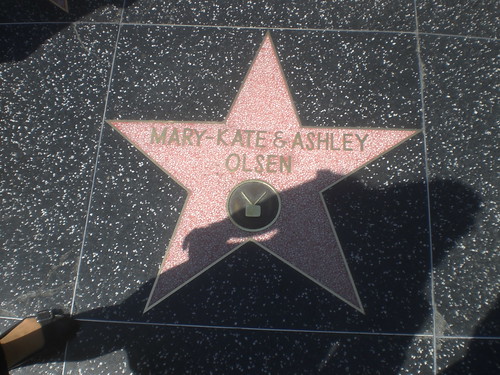 Wikipedia's twin page contains a section about "half-identical" or "semi-identical" twins. These are twins, who instead of sharing half their DNA (like fraternal twins or other siblings) or all the DNA (like identical twins), share three-quarters of their DNA.
Wikipedia's twin page contains a section about "half-identical" or "semi-identical" twins. These are twins, who instead of sharing half their DNA (like fraternal twins or other siblings) or all the DNA (like identical twins), share three-quarters of their DNA.There are two popular explanations for this. The first involves "polar bodies" which are produced during cell division in human eggs and generally discarded during the body. In this scenario, the polar body ends up being fertilized by a different sperm and producing one of the twins -- identical on the mother's side, but different on the father's side.
The other explanation involves two sperm fertilizing one egg, which then divides in such a way that both resulting embryos are "normal". Again, you would get the same genes on the mother's side, but different ones from the father.
Some twin books treat the existence of such twins credulously. For example, Double Duty hedges, "There's growing speculation surrounding a third twin type called semi-identical or half-identical twins, as well." The Everything Twins, Triplets, And More Book says, "it can provide a tidy explanation for fraternal twins with a strong resemblance." Both books use the Olsen Twins as an example.
Here's the thing. Returning to the Wikipedia page, it only cites two known examples of half-identical twinning --- one of each type referenced above. In one case, one twin didn't survive, in the other, one twin was a hermaphrodite. So chalk these up to "theoretically possible, but not something you wish for your own twins."
I have another tidy explanation for fraternal twins with a strong resemblance -- they're siblings! Haven't you ever seen siblings who are the spitting image of each other when adjusting for age? (E.g., you have to check the date on the photograph to figure out which kid it is.) Well, with twins, you don't have to adjust for age!
I think another reason for the popularity of the semi-identical meme is parents of identical twins who are looking for explanations for their twins' differences. The National Geographic DVD In the Womb: Identical Twins
So instead of indulging parents' belief that their twins are some super-rare third type of twin, twin parenting books should level with people. Unless you have a medical journal proving your point, your twins are "just" fraternal or identical. But cheer up --- they could still turn out to be worth $100 million.


